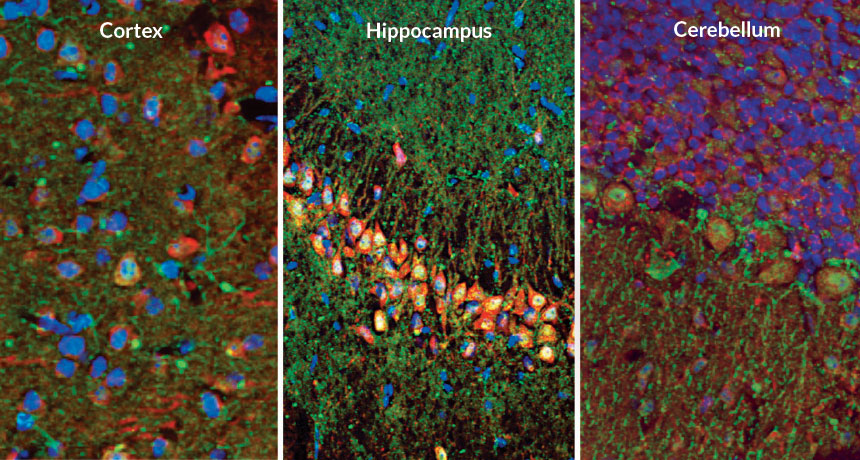Year in review: Gaps in brain nets might store memories

A HOLEY HYPOTHESIS Scientists are giving new attention to the holes in nets (green in the three images above) that envelop nerve cells in the mouse brain.
S. Palida et al

A HOLEY HYPOTHESIS Scientists are giving new attention to the holes in nets (green in the three images above) that envelop nerve cells in the mouse brain.
S. Palida et al